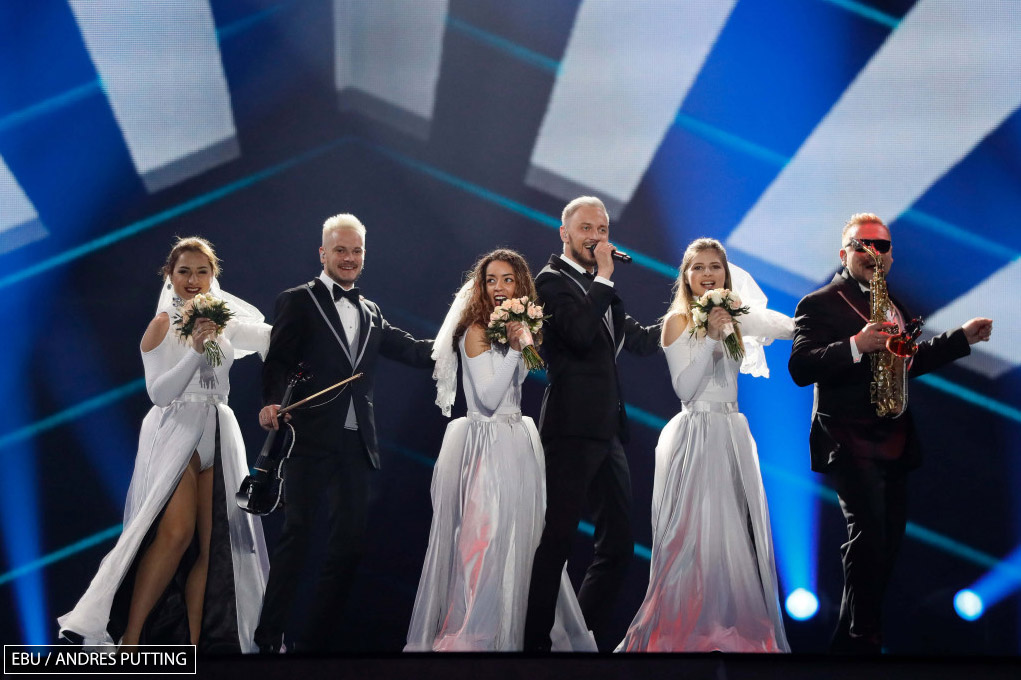
Moldova’s national broadcaster TRM announces key details for “Etapa Nationala”: the final will take place on January 17th, with major format changes ahead of Eurovision 2026 in Vienna, Austria.
The Moldovan national broadcaster TRM officially confirmed Moldova’s participation in Eurovision 2026, following its dramatic withdrawal from the contest last year during the late stages of preparation. The broadcaster also confirmed the return of its traditional “Etapa Nationala”, which will determine the Moldovan entry for the Eurovision stage in Vienna, Austria.
Moldova’s national broadcaster TRM has unveiled new and significant details about its selection process for the Eurovision Song Contest, “Etapa Nationala”. Following earlier reports today about the appointment of new producers and the opening of the song submission window, the broadcaster has now confirmed the date, venue, and a key change in the audition process.
Grand Final at the Arena, Auditions Behind Closed Doors
The headline news from today’s press conference is that the final of “Etapa Nationala 2026” will take place on Saturday, January 17th, 2026. In an evident production upgrade, the grand final will be held for the first time at the Arena Chișinău in the capital, Chișinău – the country’s largest and most modern indoor venue.
Another major change concerns the audition stage. After artists submit their songs, they will be invited to perform live before the jury. However, unlike previous years, these live auditions will be held behind closed doors and will not be broadcast. The jury will select the finalists internally for the televised show. While this may seem like a minor format adjustment, for Eurovision enthusiasts and die-hard national finals fans, it represents a significant shift.
In Moldova, the audition stage has become a social media spectacle thanks to its colorful and entertaining performances, often featuring contestants of questionable vocal talent. Some entrants have even become cult figures without ever reaching a final, simply through their recurring attempts. Among them are Tudor Bumbac, the 84‑year‑old known for his energetic dance tunes performed in a suit – sometimes too earnestly or wearily, occasionally forgetting his song lyrics, or Sasha Bognibov, famous for his provocative performances. Bognibov reached the national final for the first time last year but was unable to compete after Moldova’s withdrawal from Eurovision 2025.
Learning from the Past: Key Details Confirmed So Far
As reported earlier today, Moldova’s return to the Eurovision stage follows its dramatic withdrawal last year. The latest announcements build upon already‑confirmed details:
-
Production: The show will be produced by Serghei Orlov and Roman Burlaca, two highly respected figures in Moldova’s music industry.
-
Song submissions: Entries open on November 7th and will remain open for 30 days.
-
Jury lineup: The judging panel will feature 20 experts – 5 international and 15 Moldovan professionals.
According to available information, Moldova appears to have taken its year‑long hiatus seriously, aiming to elevate the production in every aspect. The national broadcaster is ensuring that participating artists meet all technical requirements, is enlisting experienced producers to ensure a smooth broadcast, and has chosen the nation’s premier indoor arena as the host venue. Overall, Moldova seems determined to restore the credibility of its national final, which suffered a tarnished reputation last year – culminating in the cancellation of the final and the country’s withdrawal from the competition.
Moldova at Eurovision: Distinct Identity and Style
Moldova has participated in Eurovision 19 times without achieving a victory, missing only one contest. In 2020, it planned to compete with Natalia Gordienko and her song “Prison”, but the contest was canceled due to the COVID-19 pandemic, and Gordienko returned the following year.
 Moldova’s absence from the most recent contest marked the first time the country had ever skipped the event. Its debut came in 2005 with Zdob Si Zdub’s “Boonika bate doba” (in English: “Grandma beats the drum”), finishing in sixth place. Since then, Moldova’s results have fluctuated widely. Its best-ever result came in 2017 when Sunstroke Project placed third with “Hey Mamma”.
Moldova’s absence from the most recent contest marked the first time the country had ever skipped the event. Its debut came in 2005 with Zdob Si Zdub’s “Boonika bate doba” (in English: “Grandma beats the drum”), finishing in sixth place. Since then, Moldova’s results have fluctuated widely. Its best-ever result came in 2017 when Sunstroke Project placed third with “Hey Mamma”.
Moldova is known for showcasing songs that feature local musical flavors, proudly doing so in 2005, 2009, 2012, 2018, 2022, and 2023, achieving a place in the final each time – many of its best results were tied to songs with ethnic influences.
Aside from missing the top prize, Moldova has experienced nearly every position on the scoreboard – from third to last place. In 19 appearances since 2005, Moldova has qualified for 13 finals, with one notable non-qualification streak between 2014 and 2016, reaching its lowest result in 2014 with a last-place finish. Conversely, the country placed in the top half of the scoreboard in 2005, 2007, 2011–2013, 2017–2018, and 2021–2022. Currently, Moldova’s Eurovision outlook remains pretty underwhelming since its last participation ended its recent qualification streak.
Moldova has never won Eurovision and has reached the Top 5 only once, in 2017. with four additional Top 10 finishes – 6th place in Eurovision 2005, 7th place in Eurovision 2022, and another twice finishing 10th, in Eurovision 2007 and Eurovision 2018.
Moldova in Eurovision 2024
Natalia Barbu represented Moldova in the first semi-final of Eurovision 2024 with the song “In the Middle”, after winning first place in the local national final. The song reached 13th place in the first semi-final, with only 20 points, and did not qualify for the grand final. This is Moldova’s lowest result in Eurovision since 2016, when Moldova reached 17th place in the semi-final.
Eurovision 2026: This will be Moldova’s 20th participation in Eurovision. Moldova joined the competition in 2005 and achieved its best result in Eurovision 2017 when SunStroke Project finished in third place with the song “Hey Mamma”.

